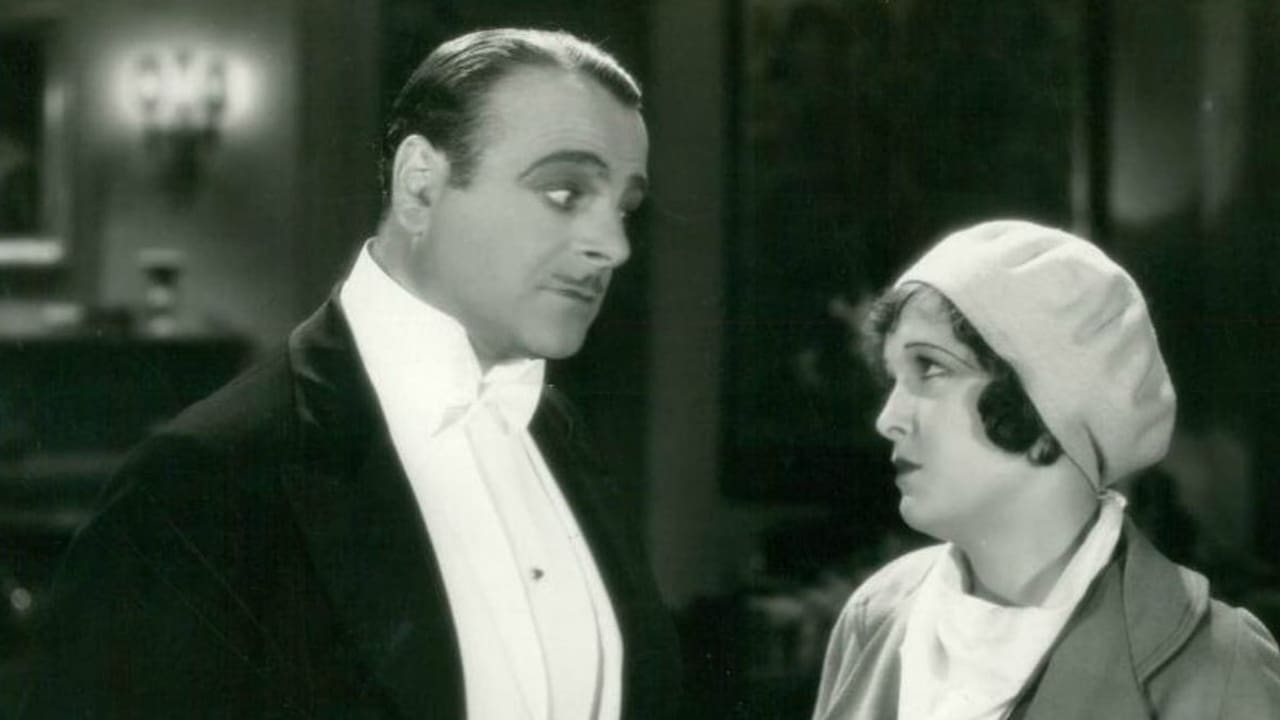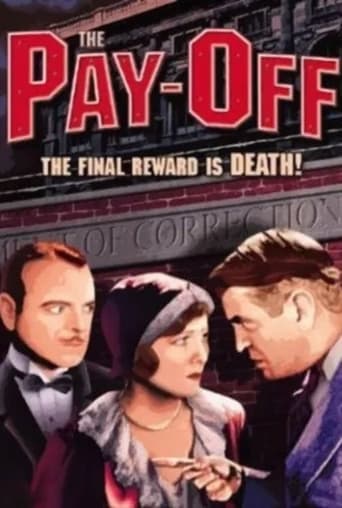SunnyHello
Nice effects though.
BroadcastChic
Excellent, a Must See
Arianna Moses
Let me be very fair here, this is not the best movie in my opinion. But, this movie is fun, it has purpose and is very enjoyable to watch.
Mandeep Tyson
The acting in this movie is really good.
Rainey Dawn
There are several crime dramas from the 1930s to chose from and this one is below average to me. If you want a good crime film from the 1930s you'll have to look elsewhere. This "drama" has it's "cutesy" moments with the wife and once in awhile the men so it's a cutesy drama at times - yea it's "one of those" you see fairly often from the 1930s.I found the story bland, the acting merely okay, cinematography and directing average. Really, look elsewhere for a GOOD crime drama from the 1930s - this one is very mundane, nothing special - doesn't have what it takes to really stand out from other films. Not a hidden gem.This is another film I wanted to like, or at least get into to a degree but I couldn't. Bored me to tears.2/10
wes-connors
On an early morning in New York City, school-boyish 20-year-old William Janney (as Thomas "Tommy" Brown) and his mature-looking 18-year-old girlfriend Marian Nixon (as Nancy Porter) wake up on a park bench. The cute couple are planning to get married on the $230 Mr. Janney has saved. Unfortunately, thieving Hugh Trevor (as Rocky) walks by and hears them talk about the money. He robs Janney. Later, the victims return the favor by finding Mr. Trevor and his gang. As it turns out, Janney works at the hotel where Trevor and his shady pals play cards. Janney's attempt to hold-up the gang fails, but gang leader Lowell Sherman (as Eugene "Gene" Fenmore) admires the effort. He takes a fatherly interest in Janney and could become even more interested in Ms. Nixon..."The Pay-Off" is a film adaptation of the Broadway play "Crime" (1927), written by Samuel Shipman and John B. Hymer. The too common title was changed, appropriately. Also changed was the name of the young teenager debuting on Broadway; future film actress Sylvia Sidney's character "Annabelle" becoming "Nancy". The film has a very stagy look, and the writers' names in the Internet Broadway Database's search engine will reveal the origin. As such, it's a good effort, also directed by Mr. Sherman. The former "silent" movie villain serves himself well as star and director. Age on stage matters less; here, Gimbels worker Nixon seems too girlish and Janney is not far behind. As Sherman's understanding servant and friend, authentic character actor George F. Marion helps.***** The Pay-Off (10/15/30) Lowell Sherman ~ Lowell Sherman, William Janney, Marian Nixon, Hugh Trevor
JohnHowardReid
For his second feature as an actor-director, Lowell Sherman hogs the limelight in the very stagily written, directed, acted, photographed and set, The Pay-Off. Based on a stage play which never made Broadway, little has been done to open it out for the screen. However, director Sherman has an advantage over the rest of the cast which be exploits to the hilt, hogging the camera unmercifully even when he is seated in a two-shot or a grouping of four or five. He also uses his penetrating voice to draw the audience's full attention his way and is the only actor to use such a generous amount of black-ringed eye make-up on his pancake-powdered face, so that you and I can easily pick him out in a crowd. The other players do what they can to upstage actor Sherman, but as he was also the director, they face a losing battle. I can't even remember what the chief villain looks like, but have no trouble recalling Sherman's image. I also remember Marian Nixon, who was one of the very few silent stars who had no trouble at all converting to sound, although she did retire after making her 73rd movie in 1936, after marrying director William A. Seiter in 1934. After Seiter died in 1964, she married Ben Lyon (of all people) in 1971. This was certainly news to me. I grew up with Ben Lyon and Bebe Daniels and when Bebe was forced to abandon "Life with the Lyons" for health reasons, the nation went into shock. So Ben returned to the U.S.A. and married Marian Nixon? The things you find out on IMDb! Anyway, getting back to the stagily directed "Pay-Off", it does admittedly hold the interest for its 71 minutes, despite Sherman's constant on-camera thesping. The only time he relaxes and throws a bit of meat to a fellow thespian occurs when he shares a scene with George Marion. Available on a very good Alpha DVD.
classicsoncall
Unbelievable and convoluted story elements make this a tough one to struggle through. It looks like I might be in the minority on this board, but I don't see a lot here to recommend the picture. Lowell Sherman provides about the only competence the film offers in his portrayal of crime boss Gene Fenmore. He has a great comeback to would be challenger Rocky (Hugh Trevor) for kingpin status - 'jealousy implies equality'. That's the way to put a guy in his place, and I think Rocky pretty much knew it too.As for the young couple at the heart of the story (Marian Nixon and William Janney), how clueless would you have to be to try and rob some high rollers in their own apartment? OK, they were trying to get their own money back, but Tommy (Janney) recognized the goon who robbed him, so why not just go to the cops? On second thought, that didn't always work out in these era stories either. Especially with an idiot District Attorney like the one here.With the old lights out trick used not once, but twice in the story, this one sort of muddles along until it finally peters out with Fenmore's confession. Which sort of defies credibility, because even though he was ultimately behind the jewel store robbery, a good lawyer would have gotten him off scot free with the inept Rocky calling the shots. But then again, he shot Rocky with no witnesses, even if it was self defense. Like Rocky said - "You can't be in this racket and have a code of ethics".

